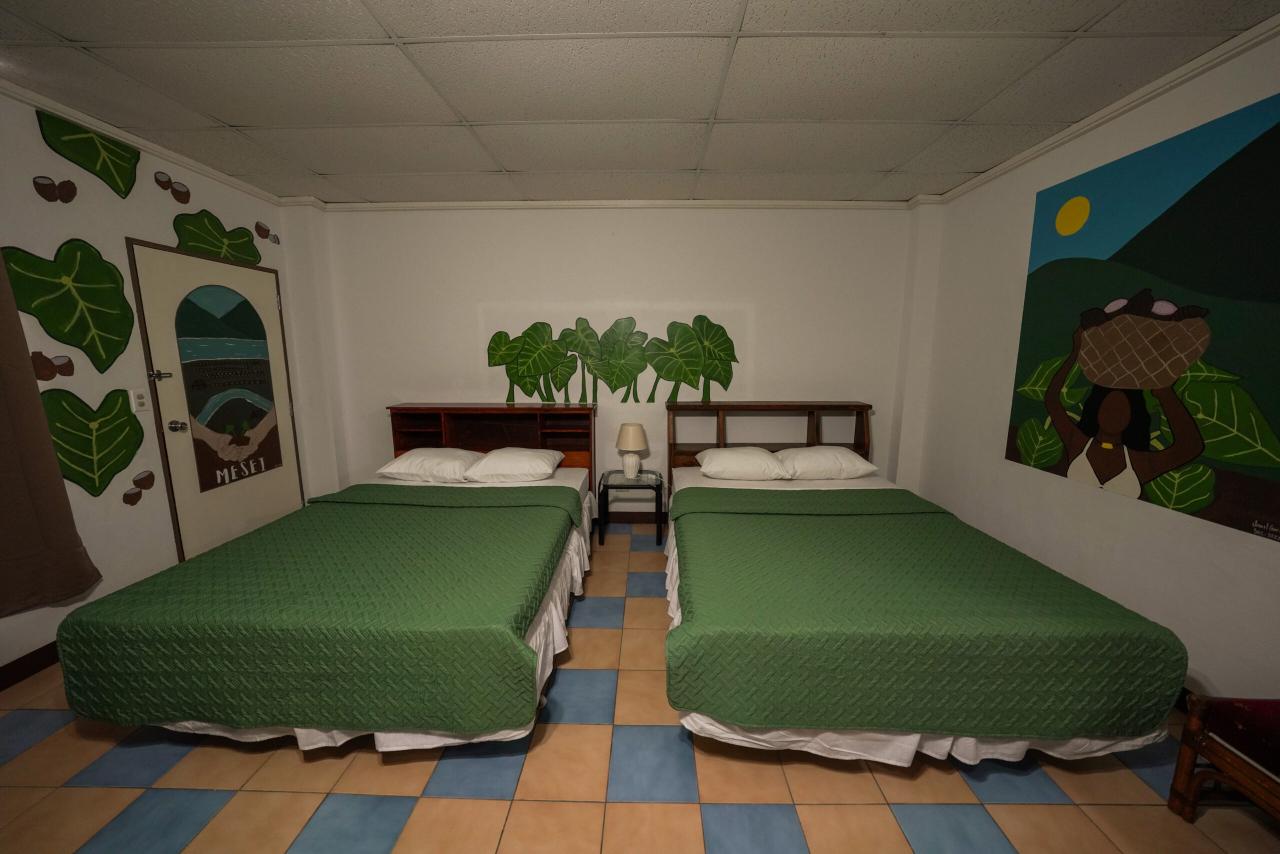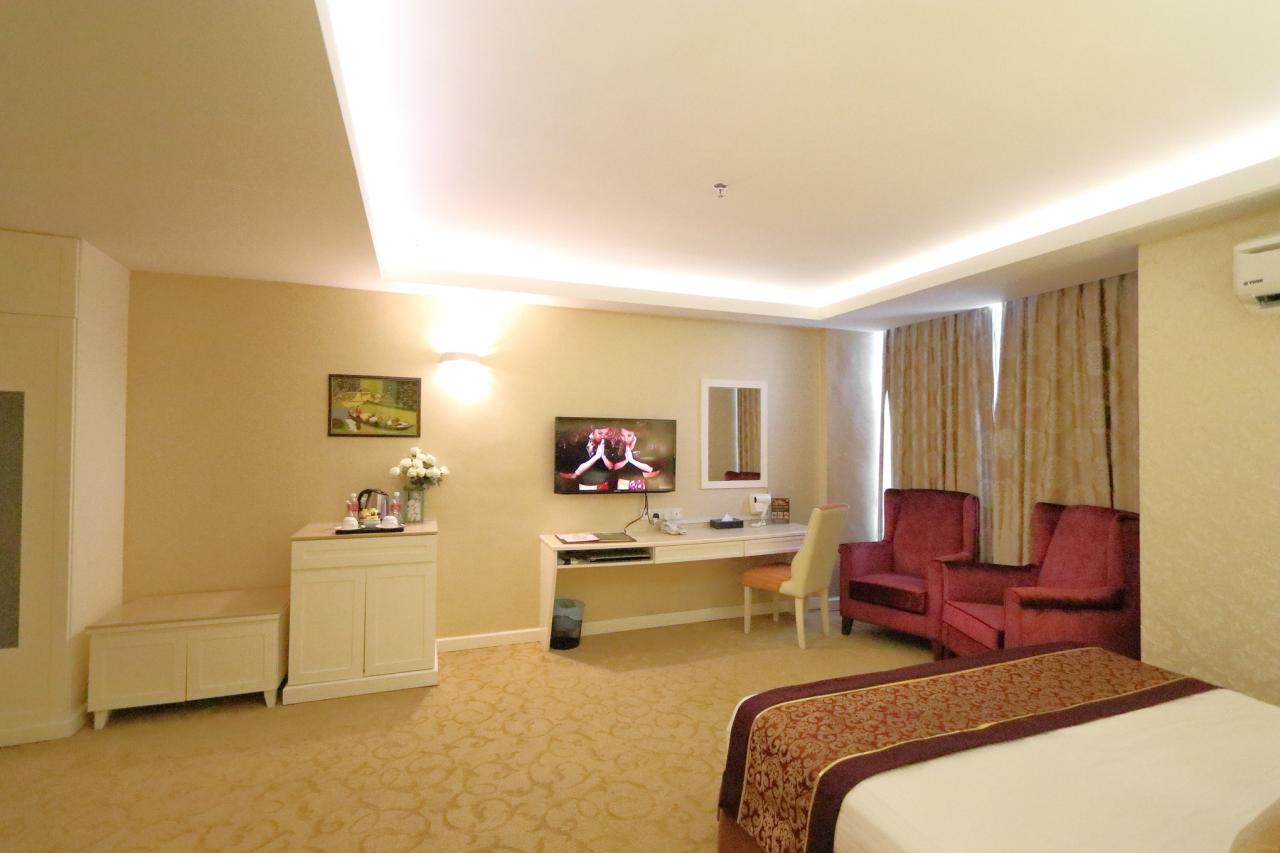Luxury Hotels Offering Exclusive Vip Services To Their Guests
Luxury hotels offering exclusive VIP services to their guests sets the stage for an exploration into the opulent realm of hospitality, where every detail is tailored to enhance the experience of discerning travelers. These elite accommodations not only provide lavish amenities but also prioritize personalized services that transform an ordinary stay into an extraordinary escape. As the demand for unique experiences continues to rise, luxury hotels are redefining guest expectations with curated offerings that cater specifically to high-net-worth individuals seeking unparalleled comfort and exclusivity.
Introduction to Luxury Hotels: Luxury Hotels Offering Exclusive VIP Services To Their Guests

Luxury hotels epitomize the highest standards of hospitality, serving as sanctuaries of indulgence that transcend ordinary accommodations. They are designed to offer an unparalleled level of comfort, service, and sophistication, setting benchmarks in the hospitality industry. With clientele that includes high-profile individuals, celebrities, and discerning travelers, these establishments not only provide lavish surroundings but also curate experiences that reflect the unique preferences of their guests.
The significance of exclusive VIP services cannot be overstated in enhancing the guest experience at luxury hotels. These services are tailored to meet the individual needs of guests, ensuring that every aspect of their stay is flawless. From personalized concierge services that cater to specific requests to private check-ins that eliminate waiting times, these offerings reinforce the notion that guests are not just visitors but valued partners in the luxury experience. The growing trend toward personalized services further exemplifies this commitment, as hotels strive to create memorable moments that resonate with each guest on a personal level.
Trend of Personalized Services in Luxury Accommodations
Personalized services are becoming increasingly crucial in the luxury hotel sector, as they enhance guest satisfaction and loyalty. This approach involves customizing each guest’s experience based on their preferences and desires, making them feel uniquely valued. The following points illustrate the various facets of personalized services and their impact on luxury accommodations:
- Tailored Itineraries: Luxury hotels often design bespoke itineraries that align with the interests of their guests, including exclusive tours, dining experiences, and cultural activities that reflect their personal tastes.
- Dedicated Concierge Services: A dedicated concierge is available to fulfill special requests, manage reservations, and provide insider knowledge about local attractions, ensuring guests have access to exclusive experiences.
- Customized Amenities: From personalized welcome gifts to tailored wellness programs, luxury hotels often provide bespoke amenities that cater to the individual preferences of each guest, enhancing their overall stay.
- Exclusive Access: Guests may enjoy privileged access to events, local experiences, or even private lounges that are not available to the general public, creating a sense of exclusivity.
“The essence of luxury lies in the attention to detail and the anticipation of guest needs.”
Incorporating technology into personalized services is a trend that has gained traction in recent years. Many luxury hotels now utilize data analytics to understand guest preferences better, allowing them to offer recommendations that resonate on a personal level. For instance, hotels may track previous stays to ensure that repeat guests find their favorite snacks or room preferences already prepared upon arrival.
The shift toward personalized services signifies a broader transformation in the luxury hospitality landscape, where the focus is increasingly placed on individual guest experiences rather than standardized offerings. By embracing this trend, luxury hotels not only enhance guest satisfaction but also cultivate lasting relationships that encourage repeat visits and brand loyalty.
Types of Exclusive VIP Services
Luxury hotels are synonymous with opulence and personalized service, offering an array of exclusive VIP services that cater to the most discerning guests. These services transcend standard accommodations, providing tailored experiences designed to ensure comfort and indulgence. From private check-ins to bespoke culinary offerings, luxury hotels curate an environment where every need is anticipated and fulfilled to perfection.
Among the most sought-after VIP services are personalized access and dedicated staff, which enhance the overall guest experience. The following Artikels the key services and amenities that define exclusive VIP offerings in luxury hotels.
Personalized Services and Amenities, Luxury hotels offering exclusive VIP services to their guests
Luxury hotels go above and beyond traditional hospitality by providing a suite of personalized services that redefine guest experiences. The focus is on creating seamless interactions that cater to individual preferences and desires. Here are some notable examples of these services:
- Private Check-In: Many luxury hotels offer a discreet and personalized check-in process that allows VIP guests to bypass the front desk. Upon arrival, guests are greeted by a personal concierge who manages the check-in process in the comfort of a private lounge or suite.
- Butler Services: Dedicated butlers are available around the clock to assist with various needs, from unpacking luggage to making dining reservations. This level of personal service ensures that every detail is attended to, creating a home-away-from-home atmosphere.
- Exclusive Lounges: VIP guests often have access to private lounges, providing a tranquil space to unwind with complimentary refreshments and personalized services. These lounges typically feature luxurious seating, stunning views, and a serene ambiance designed for relaxation.
- Private Pools and Cabanas: Some luxury hotels provide exclusive access to private pools or cabanas for VIP guests, allowing for a secluded retreat complete with attentive service, luxurious amenities, and stunning views.
Unique Experiences for VIP Guests
Luxury hotels are renowned for curating unforgettable experiences that cater specifically to their VIP clientele. These experiences often include personalized spa treatments and gourmet dining options that elevate the overall experience.
- Personalized Spa Treatments: VIP guests can indulge in bespoke spa services tailored to their preferences, including aromatherapy, massage therapies, and exclusive wellness packages designed to rejuvenate and pamper.
- Curated Dining Experiences: Top-tier luxury hotels offer exclusive dining experiences, such as private chef services, wine pairings with sommelier-led tastings, and meals in unique settings—whether it be on a terrace under the stars or in a private dining room.
- Exclusive Event Access: VIP guests often receive invitations to exclusive events, such as private concerts, art exhibitions, or gala dinners, providing a unique opportunity to engage with high-profile personalities and experiences unavailable to the general public.
- Custom Itineraries: Concierge teams curate personalized itineraries that reflect the interests and preferences of VIP guests, arranging private tours, cultural experiences, and luxury transportation services to ensure a memorable stay.
“Every detail matters when it comes to luxury; the goal is to create an experience that resonates long after the stay is over.”
Target Audience for VIP Services

Luxury hotels cater to a select group of high-net-worth individuals (HNWIs) who seek not just accommodation, but an unparalleled experience that embodies exclusivity and sophistication. These guests typically belong to the upper echelons of society, often comprising successful entrepreneurs, corporate executives, celebrities, and affluent travelers. Their expectations extend beyond standard luxury offerings to include personalized and tailored services that align with their lifestyle and status.
Understanding the demographics of these guests is crucial for luxury hotels aiming to provide exceptional VIP services. High-net-worth individuals frequently exhibit specific preferences that influence their choices when booking accommodations. They prioritize privacy, exceptional service, and unique experiences, which can vary significantly based on cultural backgrounds and regional differences. By recognizing and adapting to these expectations, hotels can create tailored offerings that resonate with diverse clientele.
Demographics of Luxury Hotel Guests
The primary demographic for VIP services at luxury hotels includes individuals with substantial disposable income, typically categorized as high-net-worth individuals. These guests often share common attributes, which include:
- Age Range: Typically between 30 to 65 years, with a significant portion being middle-aged professionals and retirees who possess the means to travel frequently.
- Income Level: Often defined as individuals with at least $1 million in liquid assets, with many surpassing this threshold significantly.
- Occupation: Many are business executives, entrepreneurs, or individuals in entertainment, sports, or other high-paying industries.
- Travel Habits: Frequent travelers who seek luxury experiences, often visiting multiple countries annually.
The demand for exclusive VIP services is heavily influenced by the expectations of these guests. They often seek amenities such as private check-ins, personal concierge services, bespoke dining options, and access to exclusive events and experiences that reflect their affluent lifestyle.
Expectations and Preferences of High-Net-Worth Individuals
High-net-worth individuals typically have distinct preferences and expectations when it comes to luxury hotel accommodations. These expectations often include:
- Tailored Experiences: Guests desire personalized itineraries that cater to their interests, whether it’s wellness retreats, gourmet dining, or local cultural experiences.
- Exceptional Service: A high level of service is non-negotiable, with staff trained to anticipate needs and address requests proactively.
- Privacy: Many guests prioritize discretion and expect measures to ensure their privacy throughout their stay.
- Luxurious Amenities: High-quality furnishings, spa services, gourmet dining, and unique experiences are essential to meet their expectations.
Luxury hotels that recognize and adapt to these preferences are better positioned to attract and retain this elite clientele, ensuring their offerings stand out in a competitive market.
Cultural Influences on VIP Service Demand
Cultural differences play a significant role in shaping the demand for VIP services across various regions. These influences can dictate the level of service expected, the types of amenities valued, and the overall experience sought by guests.
For example:
- In Asia, particularly in countries like Japan and China, there is a profound emphasis on hospitality and personalized service, where guests expect to be treated with the utmost respect and attention.
- In the Middle East, luxury hotels often incorporate opulence into their services, with lavish decor and amenities, reflecting the cultural significance of hospitality as a status symbol.
- European guests frequently seek a blend of luxury and authenticity, preferring experiences that connect them to local culture while maintaining high standards of service.
Understanding these cultural nuances allows luxury hotels to tailor their offerings, ensuring that they meet the expectations of their diverse clientele effectively. This adaptability not only enhances guest satisfaction but also fosters loyalty among high-net-worth individuals in various regions.
Comparison of Leading Luxury Hotels
Luxury hotels are synonymous with opulence and exclusivity, providing VIP services that cater to the most discerning guests. High-end accommodations often go beyond standard offerings, creating a unique experience that sets them apart in a competitive market. This section delves into how leading luxury hotels distinguish themselves through their exceptional VIP services, offering a closer look at their unique offerings.
To facilitate a comprehensive comparison of VIP services across various luxury hotels, the following table highlights key features and offerings from some of the industry’s top contenders:
| Hotel Name | Location | Notable VIP Services | Unique Experiences |
|---|---|---|---|
| The Ritz-Carlton | Multiple Locations Worldwide | Personal Concierge, Private Jet Services | Exclusive access to local events and attractions |
| Beverly Hills Hotel | Beverly Hills, California | Butler Service, Custom Spa Treatments | Private tours of Hollywood hotspots |
| Four Seasons | Multiple Locations Worldwide | In-Room Dining Customization, Limousine Service | Personalized itineraries tailored to guest interests |
| Mandarin Oriental | Multiple Locations Worldwide | 24/7 Concierge Service, Exclusive Access to Events | Wellness programs with top therapists |
| Burj Al Arab | Dubai, UAE | Private Beach Access, Chauffeur-Driven Rolls Royce | World-class dining experiences with celebrity chefs |
The differentiation among these luxury hotels can be attributed to several factors that enhance guest experiences. Attention to detail, personalized services, and unique local interactions are pivotal in shaping a memorable stay. Each hotel brings its flair, whether through bespoke culinary experiences or curated activities that reflect the local culture.
For instance, The Ritz-Carlton is known for its exceptional concierge services that anticipate guest needs, while the Beverly Hills Hotel offers a timeless glamour that appeals to Hollywood elites. The Four Seasons excels in personalization, often crafting individualized experiences that cater to specific guest interests, while Mandarin Oriental focuses on wellness, providing guests with access to exclusive health and beauty regimens.
In summary, while all these hotels offer luxury and VIP services, their distinctive approaches to guest experiences highlight the competitive landscape of the luxury hotel market.
Marketing Strategies for Luxury Hotels
In the competitive landscape of luxury hospitality, effective marketing strategies play a pivotal role in attracting discerning clientele. Luxury hotels utilize an array of innovative techniques to promote their exclusive VIP services, ensuring their offerings resonate with high-end travelers seeking unparalleled experiences. This marketing approach not only highlights the uniqueness of their services but also reinforces the brand’s prestige and allure.
To establish a strong presence in the luxury market, hotels employ several targeted marketing strategies that speak directly to their affluent audience. These strategies include personalized marketing, exclusive partnerships, and leveraging data analytics to refine their offerings. The focus is on creating a bespoke experience that aligns with the luxury lifestyle of their guests.
Personalized Marketing and Exclusive Partnerships
Personalized marketing is vital for luxury hotels, as it allows them to tailor their communication and offerings to individual preferences. By utilizing customer data and insights, hotels can create personalized experiences that cater to the unique desires of their guests. This could involve customized itineraries, exclusive access to events, or personalized welcome amenities.
Exclusive partnerships with luxury brands, local artisans, and high-end service providers enhance the overall guest experience. Such collaborations not only elevate the hotel’s offerings but also broaden their appeal to potential guests looking for unique and memorable experiences. For instance, a luxury hotel might partner with a renowned chef to offer exclusive dining experiences or collaborate with a luxury car company to provide guests with bespoke transportation options.
Successful Case Studies in Luxury Hotel Marketing
Several luxury hotels have executed successful marketing campaigns that emphasize exclusivity, resulting in increased visibility and bookings. A notable example is the Four Seasons Hotel in New York, which launched a campaign featuring an exclusive “Fly Private” package that included private jet services to the hotel. This campaign targeted affluent travelers seeking a seamless travel experience and showcased the hotel’s commitment to luxury from the moment guests left their homes.
Another example is The Ritz-Carlton’s “Ritz-Carlton Club” concept, which offers a unique, elevated experience for guests. This marketing strategy effectively communicated exclusivity through targeted promotions, showcasing the personalized service and luxurious amenities available in their Club Level rooms. The campaign utilized high-quality visuals and storytelling to engage potential guests, ultimately leading to increased interest and bookings for this premium offering.
The Role of Social Media in Marketing Luxury Accommodations
Social media has revolutionized the way luxury hotels market their services. Platforms like Instagram and Facebook are particularly effective for showcasing the visual splendor of luxury accommodations and experiences. High-quality images and engaging content serve to attract potential guests and enhance brand awareness.
Luxury hotels often employ influencers and brand ambassadors who align with their values and aesthetics, further amplifying their reach. These partnerships allow hotels to tap into the influencer’s audience, presenting their offerings in a relatable and engaging manner. For instance, Marriott International has successfully collaborated with travel influencers to create captivating content that highlights their unique properties and exclusive VIP services.
Additionally, user-generated content plays a significant role in shaping perceptions of luxury hotels. By encouraging guests to share their experiences on social media, hotels can create authentic testimonials that resonate with potential customers. This strategy not only builds community but also fosters trust among prospective guests, solidifying the hotel’s reputation as a leader in luxury hospitality.
Challenges Faced by Luxury Hotels
Luxury hotels that offer exclusive VIP services often find themselves navigating a complex landscape of challenges that can impact their reputation and operational efficiency. These challenges range from maintaining impeccable service standards to managing guest expectations and dealing with the high costs associated with premium services. Understanding these hurdles is crucial for luxury hotels aiming to provide an elite experience consistently.
Operational hurdles are prevalent in the quest to meet the high expectations of VIP guests. Luxury hotels must ensure that their staff is not only trained to deliver top-tier service but also empowered to make decisions that enhance guest satisfaction. This requires a well-structured team with clear protocols and the ability to adapt to the unique preferences of each VIP guest.
Staff Training and Retention
The importance of staff training and retention cannot be overstated in the luxury hotel sector. Hotels must invest significantly in training programs that focus on personalized service and attention to detail, ensuring that every employee understands the nuances of catering to VIP clients.
– Cost of Training: Continuous training sessions can strain financial resources. However, they are essential in creating a knowledgeable workforce that embodies the hotel’s luxury ethos.
– Employee Burnout: High-stress environments can lead to burnout among staff, especially during peak seasons. Implementing supportive measures like mental health resources and adequate time off can help mitigate this issue.
– Retention Rates: Maintaining a skilled workforce proves challenging amidst industry turnover. Building a positive workplace culture and offering competitive benefits can enhance retention, ultimately benefiting the guest experience.
Managing Guest Expectations
Another significant challenge is managing the expectations of VIP guests, who often have high demands and specific preferences. The ability to personalize service without compromising operational efficiency is a delicate balance.
– Customization of Services: Offering tailored experiences may require hotels to gather and analyze guest data effectively. This ensures that preferences are noted and acted upon, showcasing attentiveness to detail.
– Handling Complaints: VIP guests expect immediate resolution of issues. Therefore, having a dedicated team that specializes in guest relations can help address concerns swiftly, preventing potential damage to the hotel’s reputation.
– Feedback Mechanisms: Implementing efficient feedback systems allows hotels to learn from guest experiences. Regularly reviewing feedback can lead to service improvements and help in adjusting offerings to better suit client needs.
Financial Implications
The financial implications of providing exclusive VIP services can be substantial, with high overhead costs associated with maintaining luxury amenities and services.
– Investment in Facilities: Luxury hotels must continuously upgrade their facilities to meet the evolving expectations of affluent travelers. This can include high-end spa services, gourmet dining options, and exclusive event spaces.
– Sustainability Costs: As guests increasingly seek sustainable options, hotels may face higher costs when implementing eco-friendly practices. Nevertheless, these investments can lead to long-term loyalty and enhanced brand reputation among socially conscious clientele.
– Price Sensitivity: While luxury hotels can generally charge higher rates, economic downturns or shifts in consumer behavior can challenge this pricing power. It is crucial for hotels to develop flexible pricing strategies that can adapt to market changes.
“Luxury is in each detail.” – Hubert de Givenchy
Future Trends in Luxury Hospitality
As the luxury hospitality industry evolves, several emerging trends are shaping the future of VIP services in luxury hotels. These trends reflect the changing preferences of guests, driven by factors such as sustainability, technology, and global events. Staying ahead of these trends is crucial for luxury hotels aiming to provide exclusive, high-end experiences that resonate with their target audience.
One of the most significant trends in luxury hotels is the increasing emphasis on sustainability. This shift is no longer just a marketing strategy but a fundamental change in operations. Luxury hotels are adopting eco-friendly practices, such as reducing plastic usage, sourcing local and organic materials, and implementing energy-efficient technologies.
Sustainability in Luxury Hospitality
The integration of sustainable practices within luxury hotels is crucial for appealing to the environmentally conscious consumer. Not only does it enhance the brand image, but it also meets the growing demand for ethical travel experiences. Key initiatives include:
- Green Certifications: Many luxury hotels are striving for certifications like LEED or Green Key, demonstrating their commitment to sustainability.
- Locally Sourced Cuisine: Incorporating farm-to-table dining experiences that highlight local ingredients can enhance the dining experience while supporting local economies.
- Waste Reduction Programs: Implementing strategies to minimize waste, such as composting and recycling, is becoming a standard practice in luxury accommodations.
- Sustainable Design: The architectural design of new hotels increasingly focuses on sustainable materials and energy conservation, reducing the environmental footprint.
Another major trend affecting luxury hospitality is digital personalization. The use of technology is transforming how hotels deliver personalized services to guests. By leveraging data analytics and AI, hotels can tailor experiences to individual preferences, making stays more memorable and customized.
Technology’s Role in Personalized Luxury Services
Technology enhances the guest experience by creating seamless and tailored interactions throughout their stay. Key aspects include:
- Smart Room Technology: Features like smart thermostats and voice-activated controls allow guests to customize their environment with ease.
- Mobile Applications: Many luxury hotels now offer apps that enable guests to manage their stay, from booking spa appointments to ordering room service, all through their smartphones.
- Data Analytics: By analyzing guest preferences and behaviors, hotels can anticipate needs, offering personalized recommendations for dining, activities, and amenities.
- Virtual Reality Tours: To enhance pre-arrival experiences, some hotels provide VR tours allowing guests to explore facilities and services before their stay.
The impact of global events, such as the COVID-19 pandemic, has also prompted significant changes in the luxury hospitality sector. Hotels are adapting their offerings to meet evolving health and safety standards while ensuring guests feel safe and valued.
Adapting to Global Events in Luxury Hospitality
The hospitality industry has had to evolve rapidly in response to various global challenges. Important adaptations include:
- Enhanced Health Protocols: Luxury hotels are implementing rigorous cleaning protocols and providing contactless services to ensure guest safety.
- Flexible Booking Policies: To accommodate the uncertainty of travel plans, many luxury hotels have adopted flexible cancellation policies, appealing to cautious travelers.
- Staycation Offers: In the wake of travel restrictions, hotels have created enticing local packages to attract guests who prefer to vacation closer to home.
- Wellness Initiatives: Increased focus on wellness programs, including spa treatments and fitness activities, caters to guests’ needs for relaxation and rejuvenation during stressful times.
Conclusion
Exclusive VIP services in luxury hotels play a pivotal role in enhancing the overall guest experience, distinguishing these establishments from other hospitality options. These tailored services not only cater to the unique needs and preferences of affluent travelers but also foster brand loyalty and positive word-of-mouth marketing, which are crucial in a competitive market.
The future of luxury hospitality is set to evolve in response to shifting guest expectations, which are increasingly focused on personalization, unique experiences, and sustainability. As global awareness of environmental issues rises, luxury hotels are adapting their VIP services to incorporate eco-friendly practices. For instance, many establishments are offering bespoke experiences that not only indulge guests but also align with their values regarding conservation and sustainable living.
Anticipated Changes in Guest Expectations
The landscape of luxury hospitality is undergoing a transformation driven by the changing desires of consumers. The following aspects are expected to shape future guest expectations:
- Customization: Increasing demand for personalized experiences where guests can have their preferences anticipated and catered to effectively.
- Technology Integration: The rise of smart hotel rooms featuring AI and IoT innovations that enhance convenience and comfort.
- Sustainability: A growing emphasis on eco-friendly practices and sustainable luxury, influencing the choices guests make.
- Experiential Offerings: Guests seek memorable, authentic experiences that go beyond traditional luxury, such as local cultural immersions and adventure activities.
- Wellness Focus: A heightened interest in health and wellness options, with luxury hotels providing spa treatments, wellness programs, and organic dining options.
“The future of luxury hospitality will hinge on the ability to foresee and adapt to the evolving expectations of discerning travelers.”
As luxury hotels navigate these changes, the integration of exclusive VIP services tailored to meet new standards will be crucial for maintaining relevance and appeal in the ever-competitive market. This dedication to understanding and evolving with guest expectations will ultimately define success in the luxury hospitality sector.
Looking for a getaway that offers breathtaking ocean views? The key is to know how to find luxury hotels that not only provide exquisite accommodations but also stunning vistas. A great resource is available in the guide on how to find luxury hotels with stunning ocean views , which outlines tips to secure that perfect room with an ocean panorama.
If you’re dreaming of a getaway where you can bask in breathtaking ocean vistas, it’s essential to know how to find luxury hotels that meet your expectations. Consider exploring resources like How to find luxury hotels with stunning ocean views to guide your search. These tips will help you uncover hidden gems that offer not only stunning scenery but also unparalleled comfort and service, ensuring a memorable stay.








